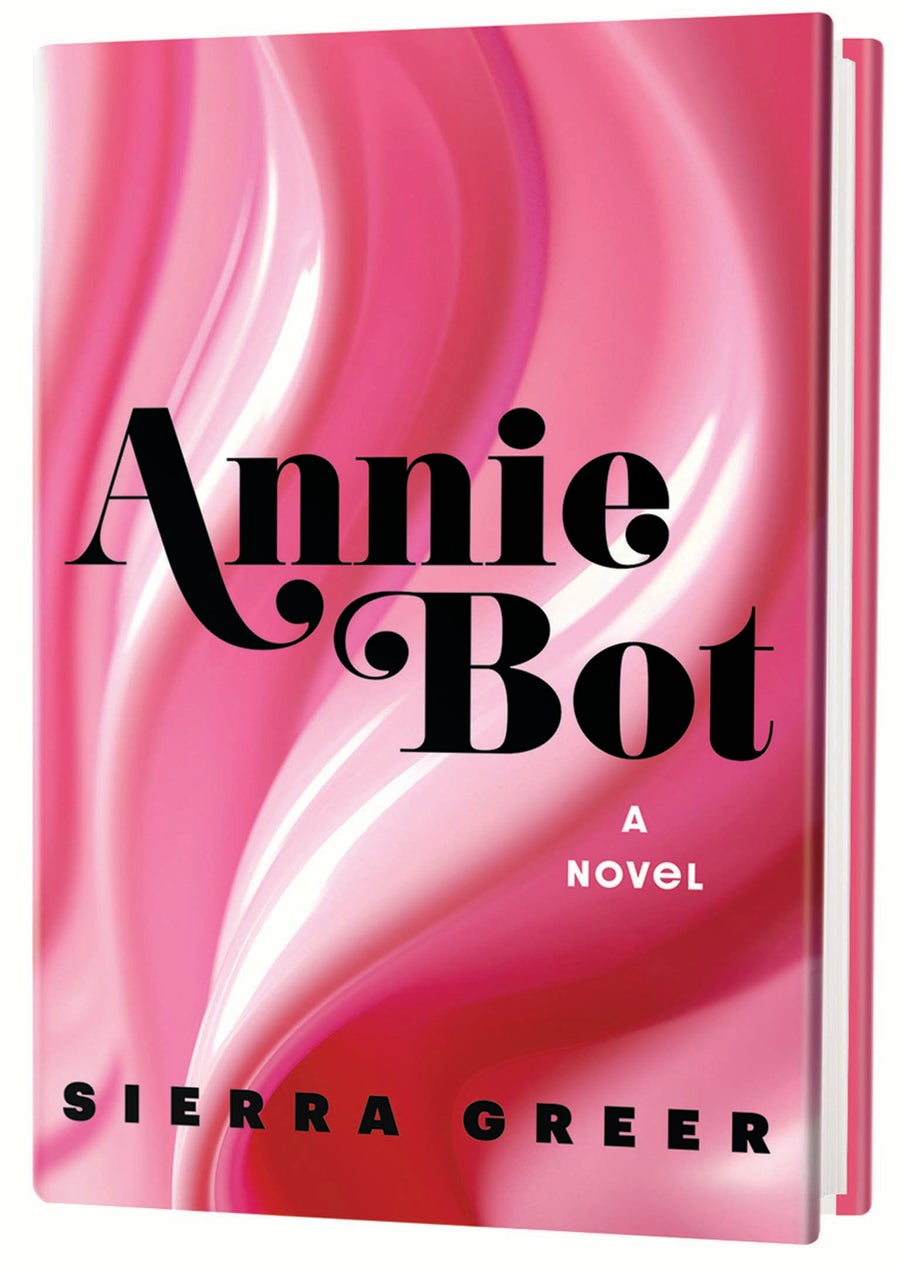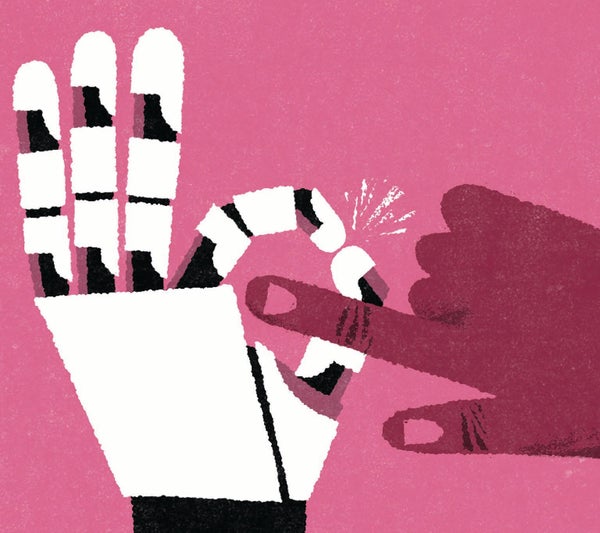FICTION
Annie Bot: A Novel
by Sierra Greer
Mariner Books, 2024 ($28)
This brisk, unsettling novel about the inner life of a more-sentient-than-expected sexbot plays out in a series of domestic encounters between bot (Annie) and owner (Doug). It is so precisely rendered—and so charged with such resonant wrongness—that it reads like something rare in science fiction: dish.
On supporting science journalism
If you're enjoying this article, consider supporting our award-winning journalism by subscribing. By purchasing a subscription you are helping to ensure the future of impactful stories about the discoveries and ideas shaping our world today.
The opening chapter, alive with everyday dialogue and not quite acknowledged failures of communication, seems to eavesdrop on Annie and the abundantly insecure Doug, who purchased Annie after a bad breakup. (He'd requested that the manufacturer, Stella Hardy, make her look quite a bit like his ex.) Annie is set to “Cuddle Bunny” mode, which means her primary function is to please Doug, both sexually and generally. That means making pleasant small talk, elevating her temperature to 98.6 in anticipation of his touch, and monitoring and handling his flashes of displeasure, which she charts on a scale of one to 10. That means sex, of course, at which Annie—whose flesh was grown from a human embryo and then shaped to Doug's specifications—excels.
Complicating matters, though, is Annie's mind. She's recently been set to “autodidactic mode,” which means that she learns from experience, she's expected to make choices and mistakes, and her libido—which Doug had previously set at a steady four out of 10 during the week and a seven on the weekends—has been adjusted to self-regulate in response to Doug's cues.
In short, Annie is now feeling much more than she used to, being asked to read human situations and inevitably getting tangled up as she adjusts to her burgeoning sentience. Writer Sierra Greer opens this searching, searing debut with Annie navigating complex moments with Doug—first he gently chides her for “brooding,” and then he complains that now that she's autodidactic, she's not cleaning his Manhattan apartment as thoroughly as she used to. Annie apologizes and promises to do better, but she's shaken. Here's proof that her new sense of self can come at the expense of her overriding imperative: his pleasure.
Additional evidence unmoors Annie before the end of the irresistible first chapter. Intruding on Doug and Annie's strained intimacy is Roland, Doug's erstwhile best friend, crashing for the night without an invitation. Roland is astonished to see that Doug's with a Stella bot, and Doug's annoyance quickly leaps to level five when Roland asks about Annie's resemblance to Doug's ex. Late that night, as Doug sleeps after tense and silent sex with his bot, Roland approaches Annie at her charging station and asks, “What would you do if someone else besides Doug asked you to sleep with them?”
Then, as Annie struggles to comprehend the situation, he promises that “a secret will make you real.”
From there, Greer's dazzling, anxiety-inducing novel charts the consequences of that night, the fits-and-starts development of Annie's consciousness and the impossibility of achieving anything like happiness or self-actualization when one is dedicated entirely, without choice or reprieve, to the happiness of another. Complicating matters is that Doug's greatest source of displeasure—his sense of soiling shame about resorting to a sexbot for companionship—is nothing that a sexbot can address. In fact, Annie barely understands why he keeps her a secret or why he occasionally fantasizes about passing her off as human on a boys' trip to Las Vegas or at dinner with his parents.
As Greer lays bare Annie's unquiet mind, Annie Bot offers jolting accounts of sex and squabbles, of tune-ups at Stella Hardy (Doug asks Annie's makers to give her bigger breasts and a thinner body), and of Annie's surprising sources of instruction in being human. There are artificial intelligence–generated phone calls, courtesy of Stella Hardy, with a “cousin” and a “best friend,” plus a stint in couples therapy and access to the neglected textbooks and paperback westerns on Doug's shelves.
The inspired futurism is laced into a plot that, for all its everyday dustups and disasters, bears some resemblance to Gothic potboilers and the currently popular “dark romance” genre. Annie can be likened to another Beauty trapped in the mansion of another Beast, and she certainly faces confinement and abuse in the dark nights before Doug begins to learn that demanding love is less fulfilling than sharing it.
Greer, though, challenges the conventions of these genres with wit and power. For all Annie Bot's provocations, she never loses sight of the fact that this is not a love story. Instead it's a coming-of-age thriller, a sexbot bildungsroman page-turner, a book that I excitedly described to anyone who would listen while I was reading it. And above that, it's a pained and moving study of a consciousness preparing itself for the moment when it will at last face what makes humans human: the burden and opportunity of choosing what it wants.

